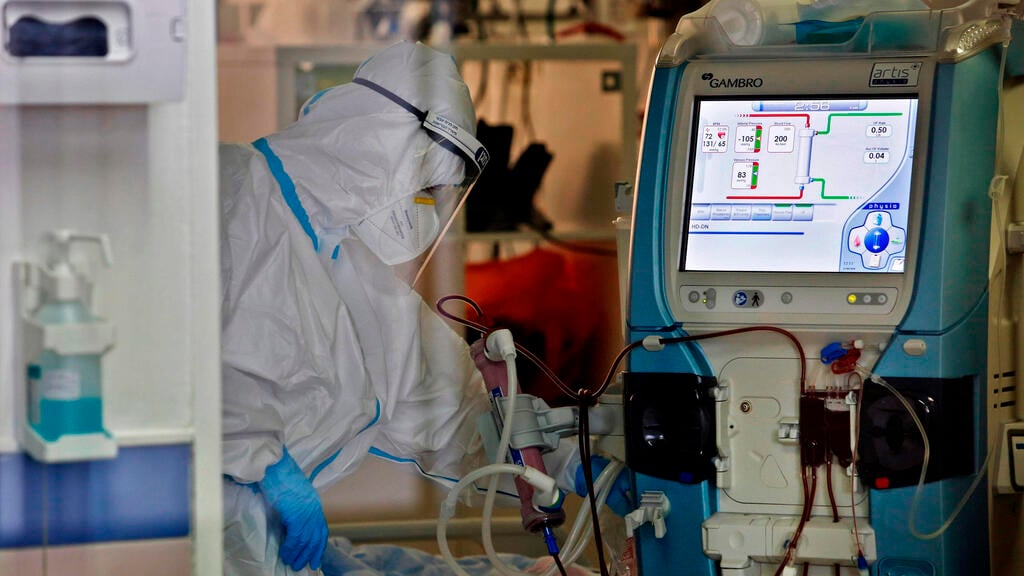Getting your Trinity Audio player ready...
Prime Minister Benjamin Netanyahu was set to push for the tightening of the newly implemented nationwide lockdown during a coronavirus cabinet meeting on Wednesday and was even mulling declaring a state of emergency.
The meeting came hours after the Health Ministry said Wednesday morning that 31 people had died from COVID-19 and 6,923 new cases of coronavirus were registered in Israel in the previous 24 hours, as the raging outbreak showed no signs of slowing.
6 View gallery
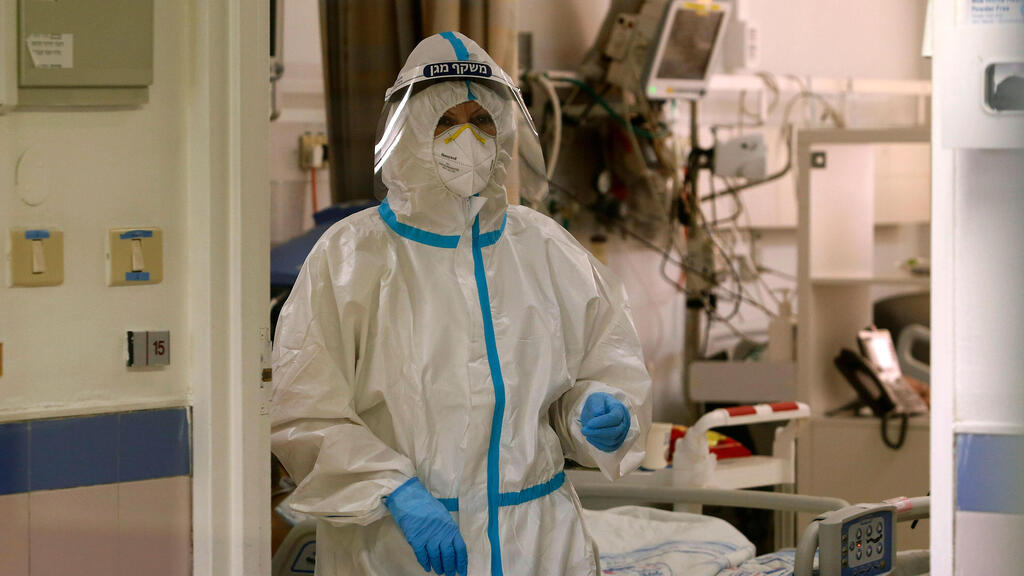

A healthcare professional wears protective gear on the coronavirus ward at Barzilai Medical Center in Ashkelon
(Photo: AFP)
The meeting, which was scheduled for 11:30am, was pushed back to the afternoon after Netanyahu held urgent consultations with various cabinet ministers.
The prime minister was set to demand a broader closure, immediate and significant tightening of restrictions and shuttering of additional sectors of the economy, including Ben-Gurion International Airport.
Netanyahu was apparently looking for the legal solution to declaring a state of emergency. The attorney general was said to be working on the technical solution to declaring a state of emergency.
6 View gallery
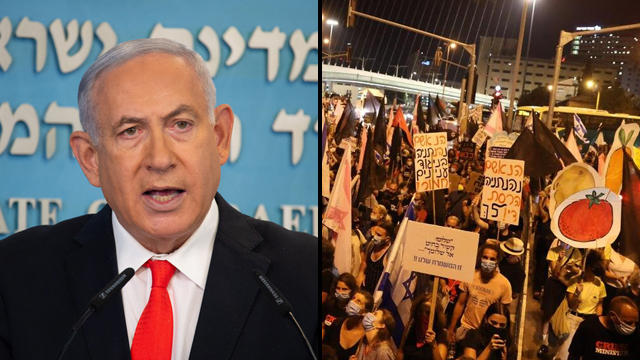

Prime Minister Benjamin Netanyahu and anti-government rally
(Photo: Amit Shaabi, Yoav Dudkevich )
According to government sources, however, Israel Police had already said it would struggle to enforce the restrictions if there were a general ban on all gatherings, including protests and prayers.
"It's a very complex issue and it's going to be a very long night," said one source.
Another government source, however, said Israel is heading for a "total lockdown" with the only question remaining is whether it will happen before or after Yom Kippur, which begins at sundown on Sunday.
"At the moment we want to do it [impose total lockdown] before Yom Kippur, but [Interior Minister] Aryeh Deri is not ready to hear it," the source said. According to the official, "it is not inconceivable that in the end it will be after Yom Kippur."
Israel, a country of some 9 million people, now has one of the world’s highest rates of coronavirus on a per capita basis, and health officials say hospitals are quickly approaching capacity.
The government last week imposed a nationwide lockdown that closed schools, shopping malls, hotels and restaurants.
Deputy Health Minister Yoav Kisch said earlier Wednesday that regulations would have to be tightened in the near future.
6 View gallery
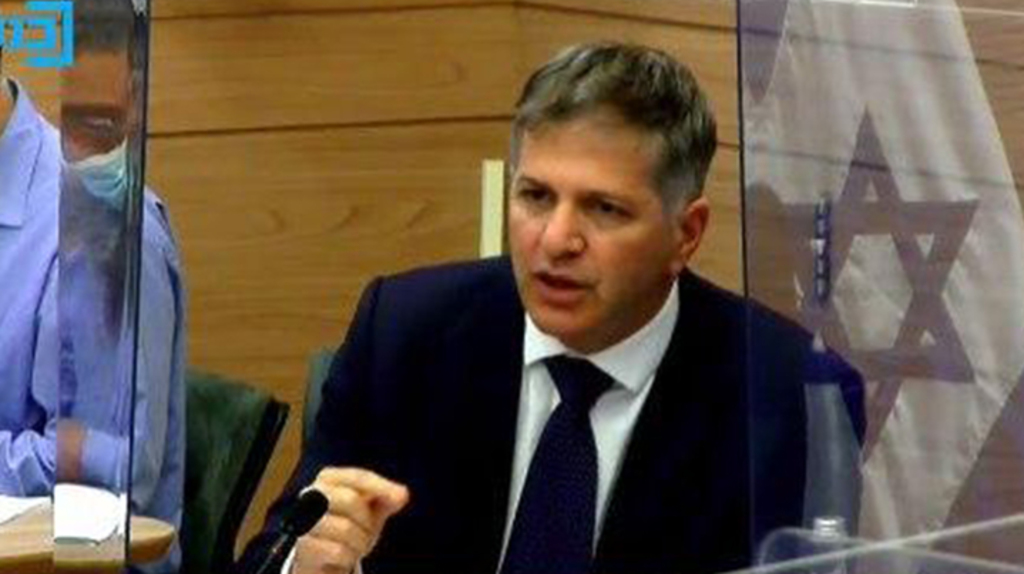

Deputy Health Minister Yoav Kisch speaks at a meeting of the Knesset committee on the coronavirus
(Photo: The Knesset Channel)
“Educational institutions will be closed, the economy will be limited to essential work, synagogues will have no indoor prayers, with arrangements for outdoor prayer, and demonstrations will be allowed without protesters traveling between cities,” he told Channel 12 TV.
“Everyone will demonstrate where he wants, will pray where he wants and will stay at home. That is what is required now.”
Israel won international praise for its handling of the outbreak last spring, moving quickly to seal its borders and impose a lockdown that appeared to contain the virus.
6 View gallery
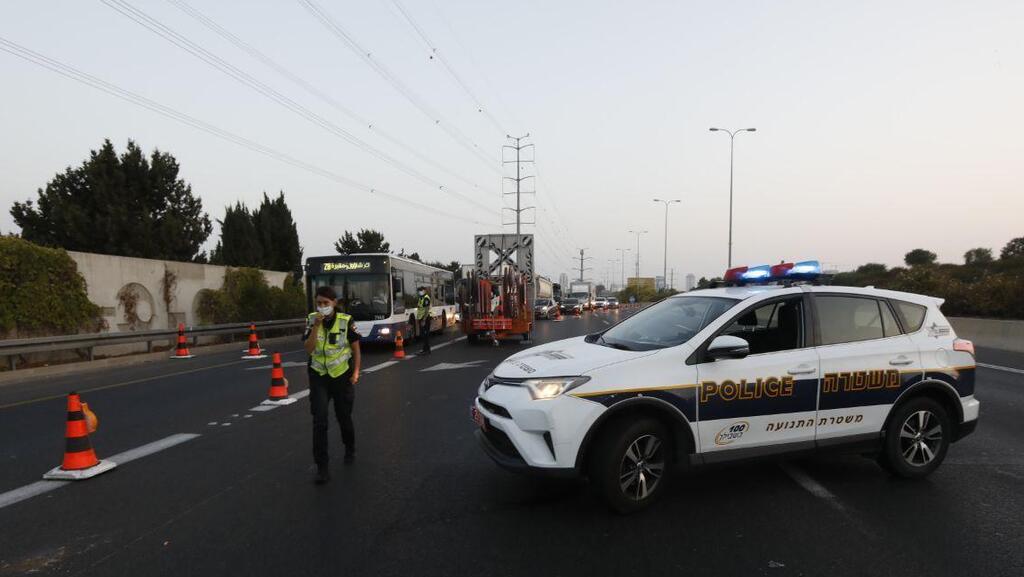

Police implementing the new lockdown measures on Route 4, one of Israel's central intercity arteries
(Photo: Shaul Golan)
But the government reopened the economy too quickly, and a new outbreak has quickly spread throughout the summer. The economy, meanwhile, has not recovered from a serious downturn caused by the first lockdown.
The Health Ministry has instructed hospitals to delay non-essential surgeries and to open additional coronavirus wards as the number of serious cases continues to rise.
Beyond further limiting economic activity, officials have been discussing shuttering synagogues and clamping down on protests — both of which risk sparking a public backlash.
6 View gallery
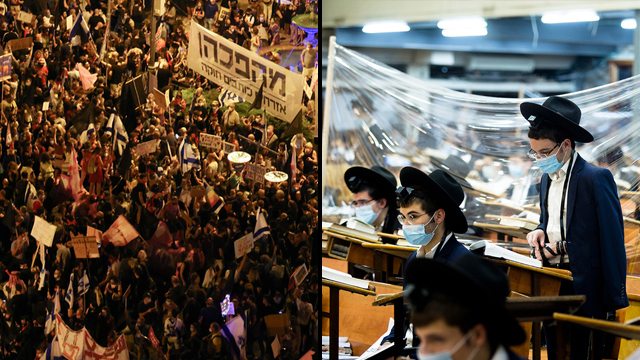

Protesters calling for the resignation of Prime Minister Benjamin Netanyahu, left, and students attending yeshiva
(Photos: AFP, Getty Images)
The limits would come at a time when Jews are celebrating the High Holidays and when weekly demonstrations have been held against Prime Minister Benjamin Netanyahu and his handling of the coronavirus crisis.
First published: 12:46, 09.23.20


